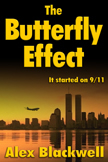 |
Every book deserves to be published
Hands on Course with Davitt College, Castlebar, Co. Mayo, Ireland
Next course sign-up
8pm, 23rd January at Davitt College
click here for more information
2019 Autumn Davitt College evening class on self-publishing concludes with excited students holding their own books in their hands
sign up here to stay informed
As the saying goes, everyone has a book in them. Many have even written one in whole or in part. Most have given up as the publishing process proved either too daunting, or they were flatly rejected by either a literary agency or a publisher. And then there are all those who wrote just for the pleasure of it – a family history, a memoir or biography, a personal poetry collection, or just a cookbook for distribution to friends and family for Christmas. All of these deserve to be published.
One small caveat might be in order here already. Every book also deserves to be edited. To what extent this is done depends, of course, on whether the book is intended to be the next block-buster, best-selling work of literary fiction, or if it is indeed just something to amuse or bemuse friends and family.
• Do you have an idea for a book?
• Have you written a novel, short story of poetry collection?
• Are you an instructor or specialist and have been asked about further reading?
• Have you been turned down or disappointed by traditional publishers?
Self Publishing for Success will provide some insight into the self-publishing process, how one gets to the point of being ready to publish one’s own work, what happens then, and how to turn a published book into an income stream – if that is indeed the objective.
Publishing a book no matter how you do it is best thought of as an entrepreneurial experience*. You have an idea for a product, in this case a book – how much of the work of making and selling the product are you comfortable doing on your own?
 Previously there were basically three
avenues to get your book ‘out there’: the traditional publisher, the vanity
press, and self-publishing. The latter potentially being the most costly for
the author. These three routes still exist today, though the self-publishing
direction has changed dramatically.
Previously there were basically three
avenues to get your book ‘out there’: the traditional publisher, the vanity
press, and self-publishing. The latter potentially being the most costly for
the author. These three routes still exist today, though the self-publishing
direction has changed dramatically.
Perhaps the biggest problem, then and now, is that writing a book is highly personal. Every novice author, and many accomplished ones as well, are absolutely certain that they know better than anyone else what should be in their book and how it should appear, even if they are dead wrong. When self-publishing it’s easy to assume you are right about everything since there is no one arguing with you – unless you invite them in.
It is often hard to comprehend that there are other people with greater expertise in the tasks of choosing the theme, title, outline, choice of words, cover, and style of a book. Tapping in to the right people can turn your work into a masterpiece.
When working with a publisher, there would usually be specialists for each of these roles. There are, however, also freelance experts who can help an individual with these tasks. If you fail to avail yourself of people with expertise in specific aspects of getting a book produced, the quality of the work will not be brought to the level it might deserve.
Publishing is a hostile and unforgiving landscape. Books are extremely competitive. There are a lot of books out there – with many more coming out daily. The details matter. From the cover design, to the interior, to the index, many authors don’t understand the impact of making the cheapest choices. It will show.
On the same note, as your book is near and dear to you, you must be aware that there are some out there who might take advantage of your vulnerability.
Beware of Sharks

Jaws, 1975
* Of course, there is always an exception to most every statement. In this case, it is a title you may wish to publish, where there is never any intention to sell any books. For example, this might be a family history, where you intend to only every order six copies, or a photo album, where one copy is only printed.
|
White Seahorse (Reg. in Ireland, #444071) is a division of Knowledge Clinic Ltd.
Europe: Port Aleria, Rosnakilly, Kilmeena, Westport, Co. Mayo, Ireland - USA: PO Box 726, Mahwah, NJ 07430 All content on this site is subject to Copyright© |












